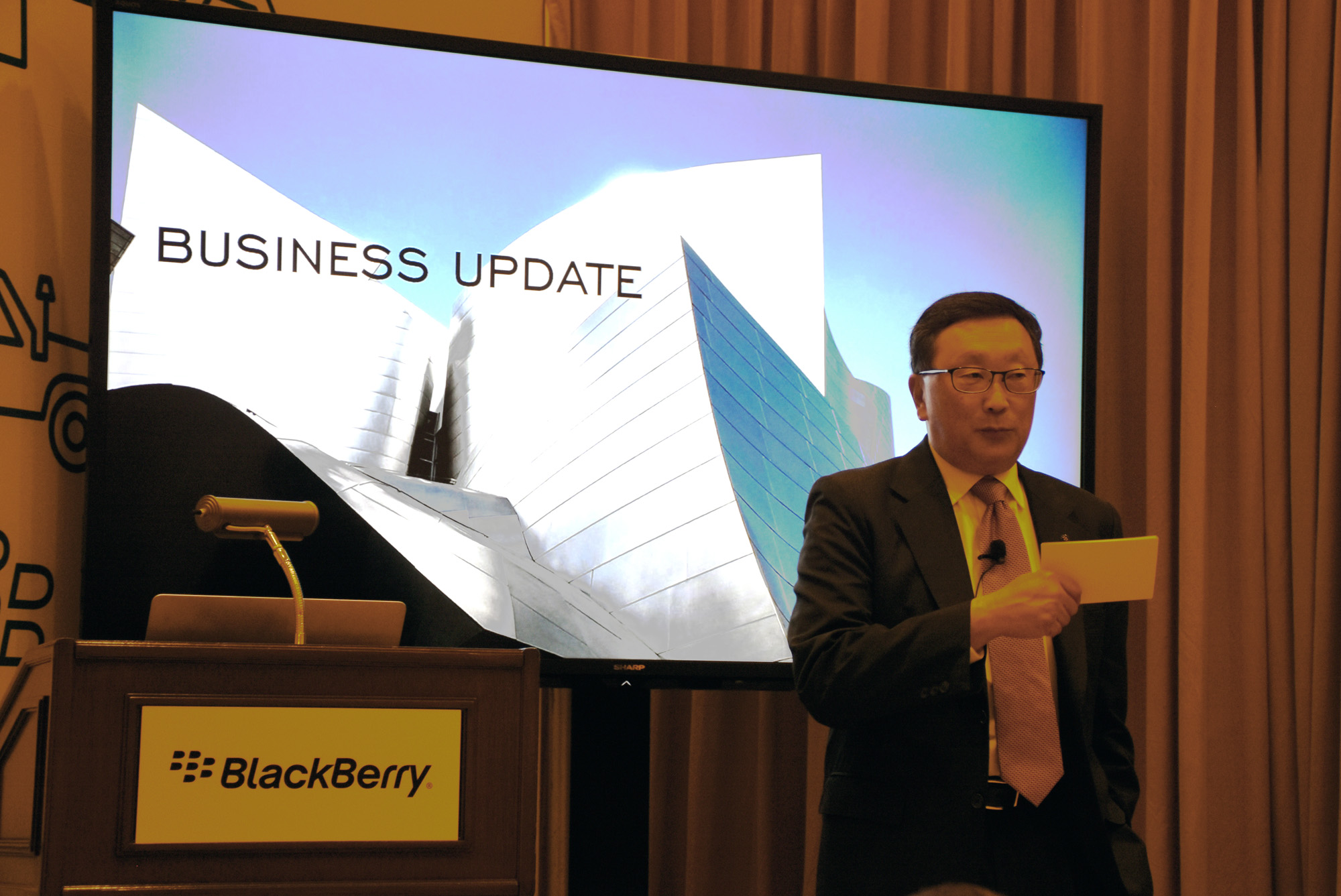
No new BlackBerry devices were unveiled at CES in Las Vegas this year, but CEO John Chen sounded bullish on the company’s prospects beyond selling smartphones, with the Internet of Things (IoT), health care and automotive critical to its success moving forward.
Chen did address hardware in a preamble before getting into some of the other things he wanted to talk about. The most notable piece of news is that the Priv, BlackBerry’s first and (currently) only Android-based smartphone, will be more widely available. AT&T had a 60-day exclusivity in the U.S. that just expired today, opening the way for Verizon, Sprint and T-Mobile to sell the device, too.
All three are confirmed to be doing so, though Chen didn’t mention any dates because each of the carriers will be doing that on their own, he said. That gives BlackBerry all seven major carriers in North America for one device — something that hasn’t happened in years.
Short of calling the Priv a success, Chen was optimistic about the momentum the device could trigger. By adopting Android, he feels it solved the application gap users had been lamenting as more and more BlackBerry users jumped ship to Android and iOS.
“I’m trying to rebuild a business in an industry that’s very competitive, but we have a lot of know-how and concepts, and we know we can expand that consumer to be a professional consumer. It’s worth a shot and that’s why we did what we did with the Priv,” said Chen in his presentation.
If the sales volume picks up a bit with the Priv, and the company adds more channel partners, Chen figures BlackBerry could make money again on the device side. More third-party accessories are set to be announced, likely at Mobile World Congress in Barcelona, including whatever it has in store for Priv owners updating to Marshmallow later in Q1.
It appears Chen has no plans to hand a death sentence to BB10, but didn’t fully rule it out, either. When asked whether it makes sense to focus on both BB10 and Android, he said he was focused on “solving the issue of the business being a viable business,” which the Priv makes a strong case for. “It’s too early to outline that plan,” he said. Chen confirmed to CNET and MobileSyrup independently that at least one, and perhaps two, more devices will be released this year running Android, but there are no plans for additional BlackBerry 10 handsets at this point.
“I want to focus on making money first, then worry about how many devices to sell,” he said. “We’re at 700,000-800,000 units per quarter, and last quarter was better, despite the Priv having only been sold in four countries. A rollout to 31 more countries for Priv is coming in upcoming quarters, and gives us a reasonable shot to get to the goal of moving five million units.”
QNX and automotive
Chen handed off the automotive portion of the presentation to Derek Kuhn, director of global sales at QNX, who noted that its technology is now in over 60 million vehicles on the road today. The main part of the announcement refers to the self-driving platform the company is putting together.
It’s made up of three elements that include advanced driver assistance systems (ADAS), vehicle-to-vehicle (V2V) communications, and vehicle-to-infrastructure (V2I) communications. Coupled with the infotainment already in the vehicle, BlackBerry refers to this as a “glass cockpit” that can all be managed through voice.
Kuhn focused primarily on security within the context of ADAS, suggesting that BlackBerry’s pedigree in that regard will serve the auto industry well as it navigates such murky territory. I will get the chance to see demos of what he’s referring to when visiting the BlackBerry/QNX booth to find out more about the practical implications.
“Whether the car is watching how you drive or is driving for you, we’ve anticipated it and are working to get all those certifications into the automotive space, and that’s really what the ADAS platform is all about,” said Kuhn.
More on this story and some of QNX’s latest technology when we see some of it in a concept vehicle tomorrow.
MobileSyrup may earn a commission from purchases made via our links, which helps fund the journalism we provide free on our website. These links do not influence our editorial content. Support us here.


